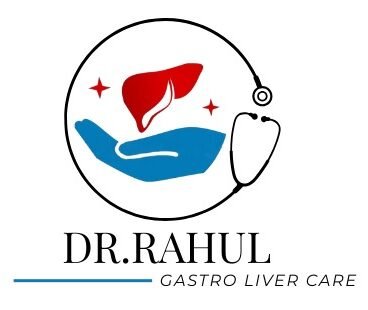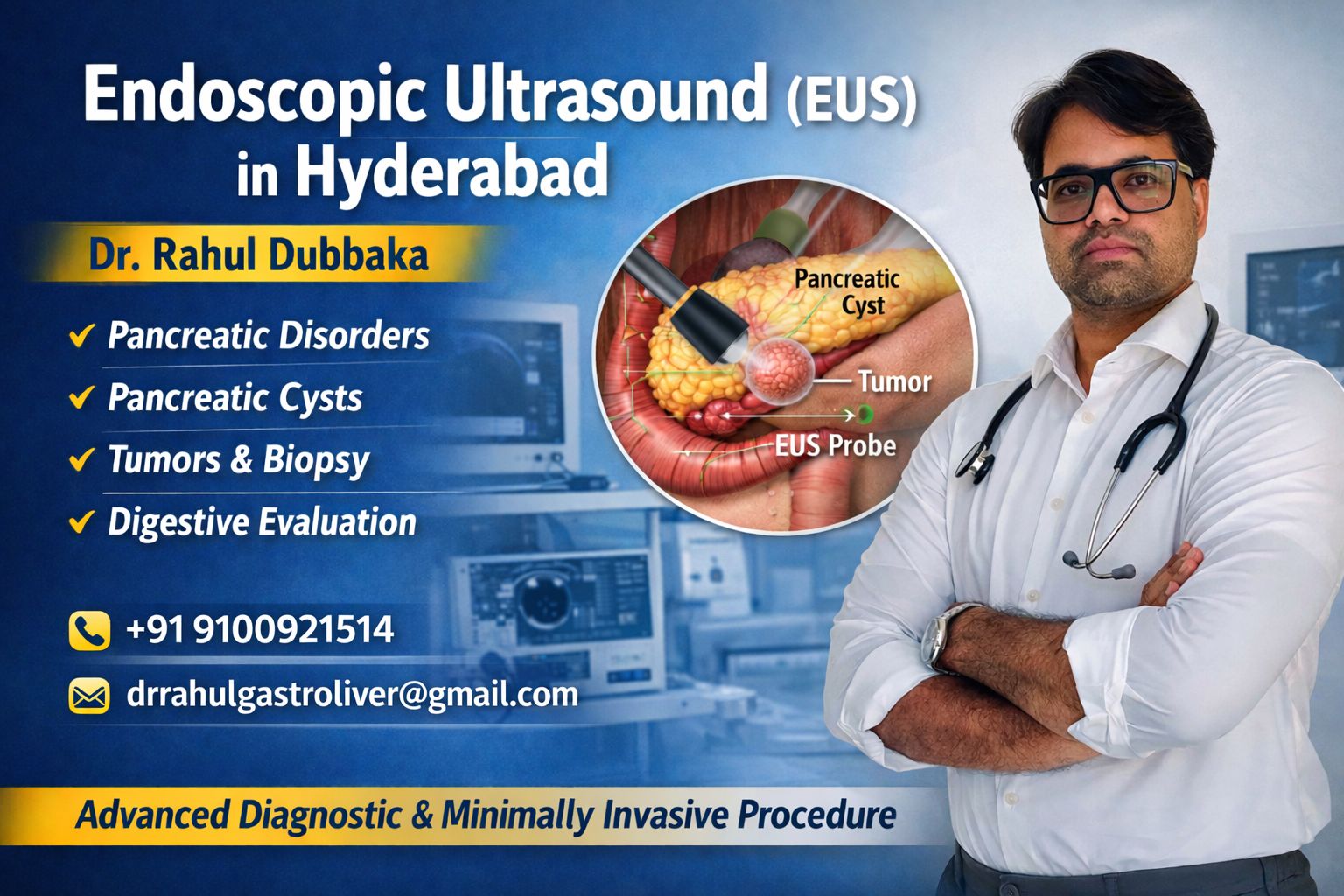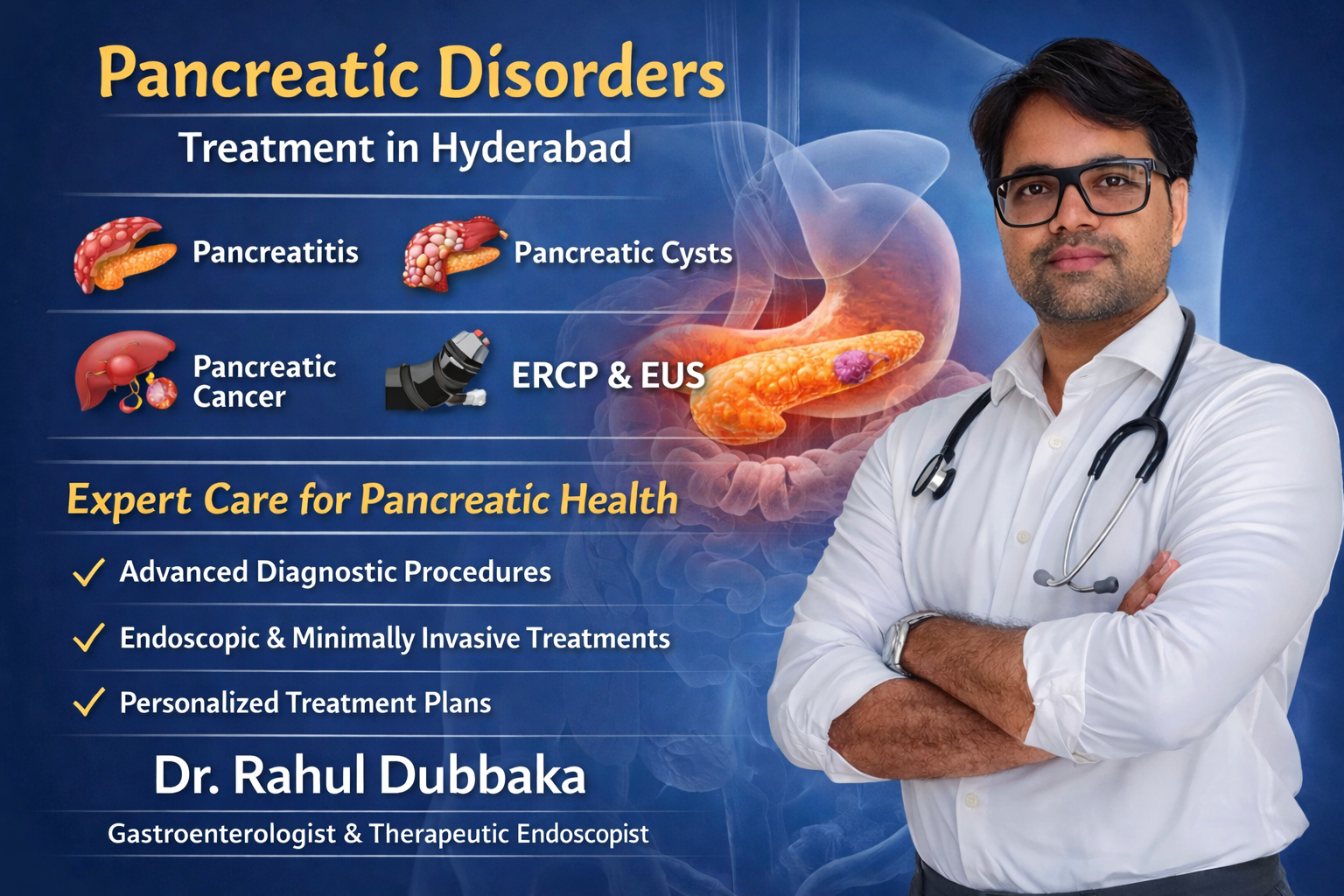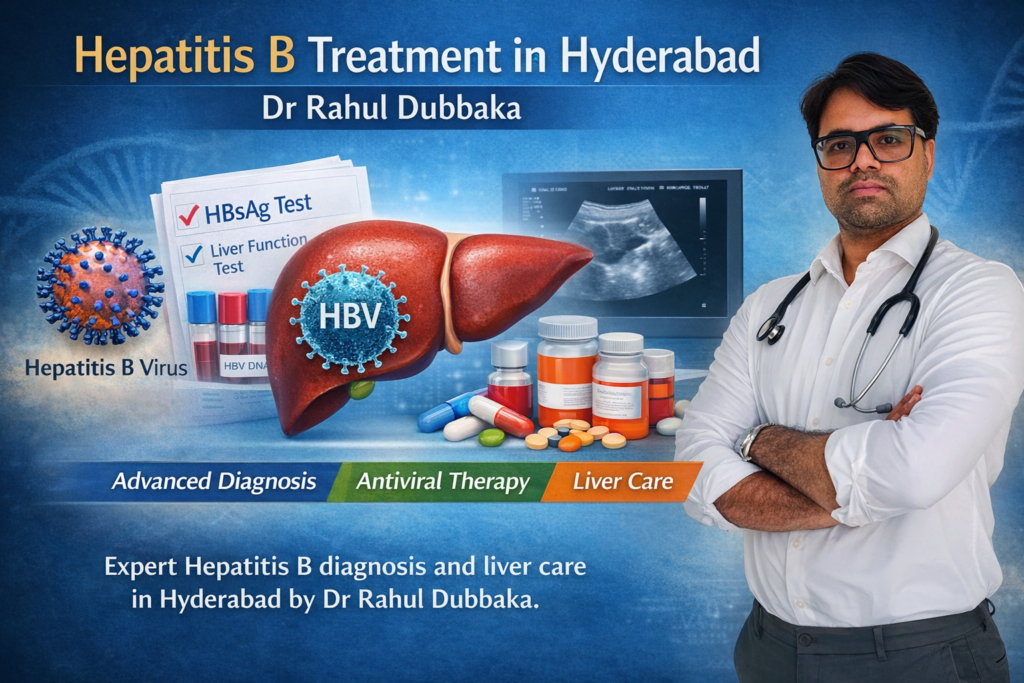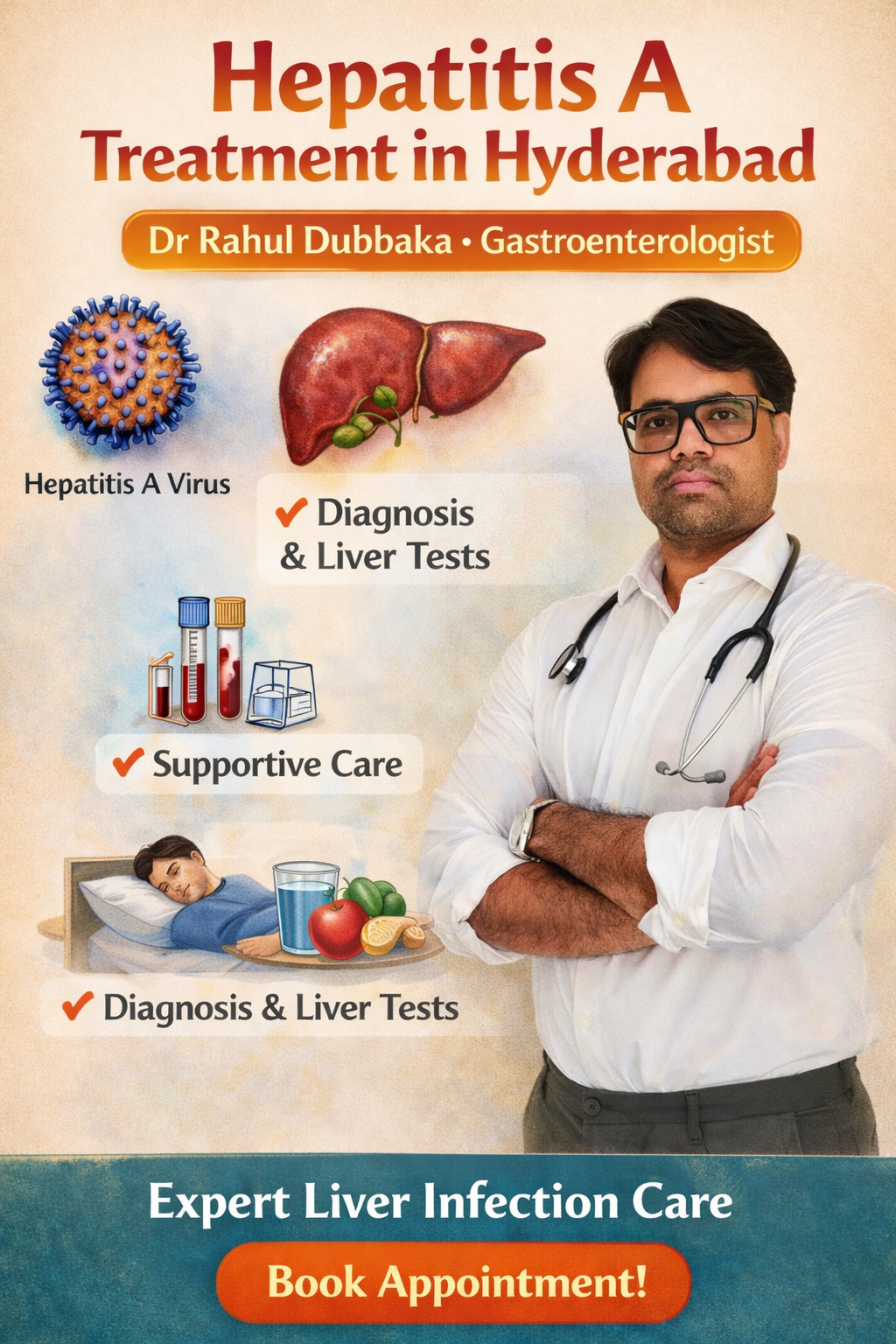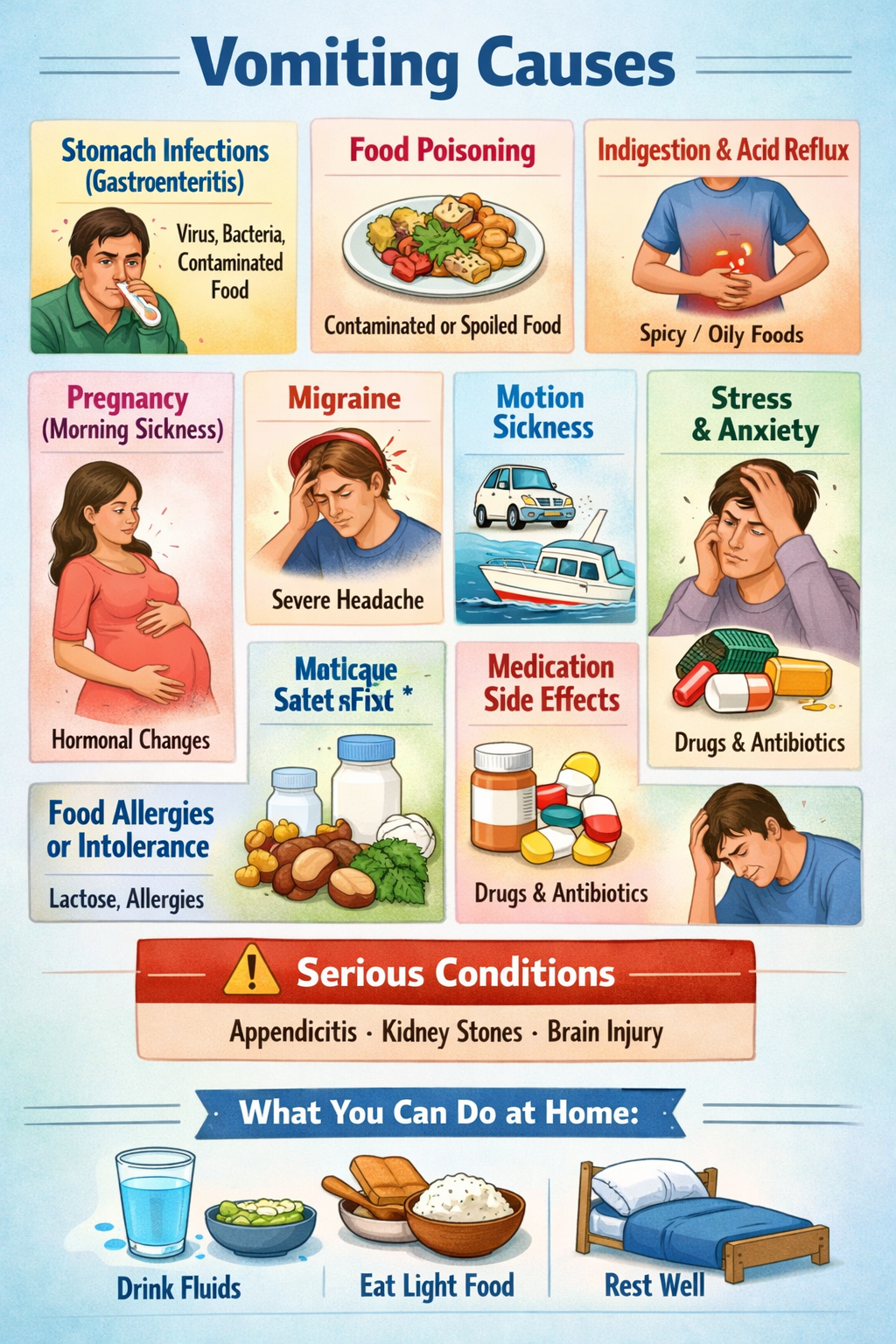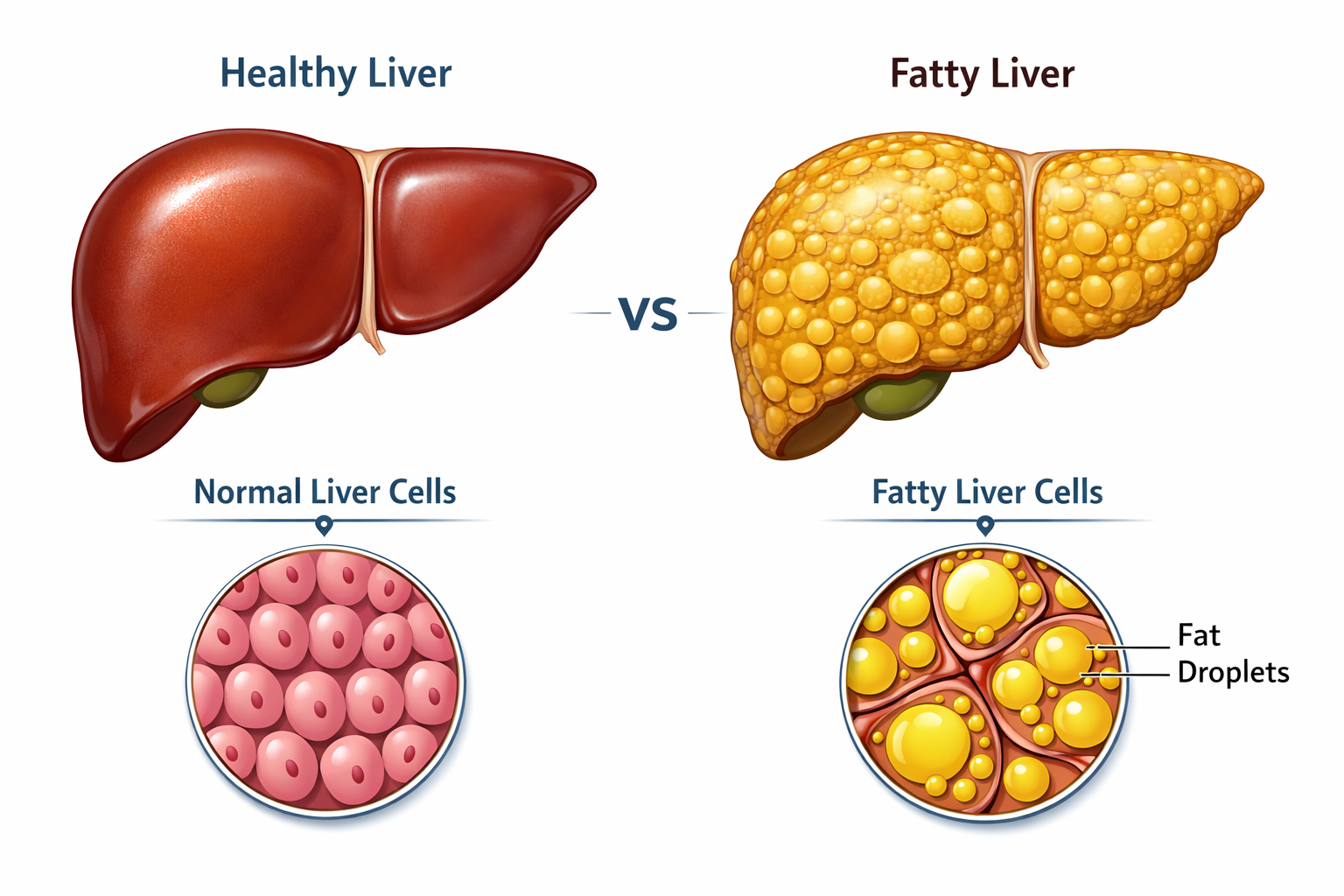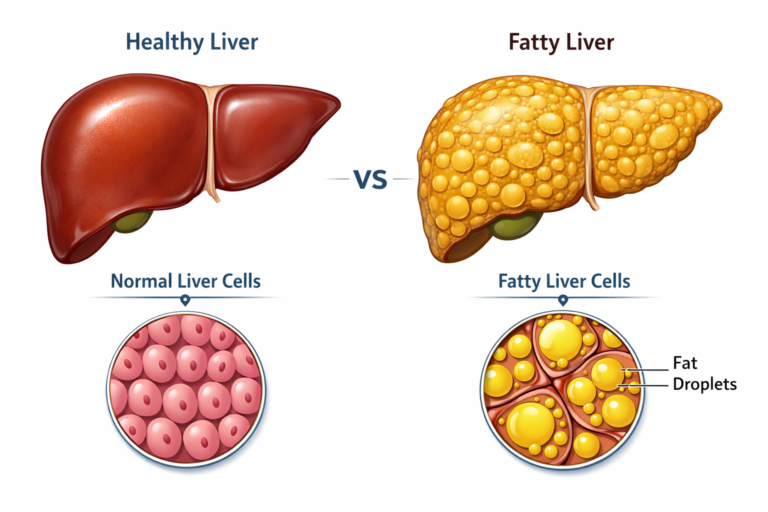Best Endoscopic Ultrasound in Hyderabad – Advanced Diagnosis & Treatment
Persistent digestive symptoms often require deeper evaluation. For this reason, many patients search for the Best Endoscopic Ultrasound in Hyderabad to receive accurate and early diagnosis. With advanced imaging technology and specialized expertise, Dr Rahul Dubbaka offers high-precision Endoscopic Ultrasound (EUS) procedures tailored to detect pancreatic and gastrointestinal conditions at an early stage.
Unlike conventional imaging techniques, EUS combines endoscopy and ultrasound into a single, highly detailed diagnostic tool. As a result, internal organs can be visualized with exceptional clarity. In addition, doctors can perform tissue sampling during the same session when necessary.
What Is Endoscopic Ultrasound (EUS)?
Endoscopic Ultrasound is a minimally invasive diagnostic procedure. During the process, a thin and flexible tube equipped with an ultrasound probe is gently passed through the mouth into the digestive tract. Because the ultrasound device sits close to the organs, the resulting images are far more detailed than those from external scans.
Through this method, specialists can carefully evaluate:
The pancreas
The bile ducts
The stomach and esophagus
The duodenum
Surrounding lymph nodes
Consequently, even small cysts, tumors, or inflammatory changes can be identified at an early stage.
Why Is EUS Recommended?
In many situations, CT scans or MRI reports may not provide sufficient clarity. Therefore, doctors often recommend Endoscopic Ultrasound for a more detailed internal view. Moreover, the ability to perform a biopsy immediately makes diagnosis faster and more reliable.
Conditions commonly diagnosed with EUS include:
Acute and chronic pancreatitis
Pancreatic cysts and tumors
Esophageal cancer
Stomach cancer
Bile duct stones
Unexplained abdominal pain
Because of its precision, EUS has become a gold standard for pancreatic evaluation.
Types of Endoscopic Ultrasound Procedures
Different clinical needs require specific EUS techniques.
Diagnostic EUS
Primarily used to assess abnormalities and evaluate organ structure in detail.
EUS-Guided Fine Needle Aspiration (FNA)
Using a fine needle, doctors collect tissue samples during the procedure. This approach allows laboratory confirmation of cancer or other diseases without requiring surgery.
Therapeutic EUS
Beyond diagnosis, certain treatments can also be performed. For example, fluid collections can be drained, and blockages may be relieved using stents. As a result, many patients avoid major surgical procedures.
Benefits of Choosing the Best Endoscopic Ultrasound in Hyderabad
Selecting an experienced specialist significantly improves both safety and diagnostic accuracy. Not only does EUS provide high-resolution imaging, but it also minimizes patient discomfort.
Key advantages include:
Early cancer detection
Minimally invasive approach
Faster recovery
Lower complication rates
Same-day discharge in most cases
Given these benefits, EUS plays a crucial role in modern gastroenterology.
How to Prepare for the Procedure
Proper preparation ensures accurate results. Typically, fasting for six to eight hours is required before the test. Patients should also inform their doctor about medications, especially blood thinners. Since mild sedation is administered, arranging transportation home is strongly recommended.
Following these instructions helps reduce risks and ensures a smooth experience.
What Happens During EUS?
At the beginning of the procedure, sedation is provided to ensure comfort. Once relaxed, the endoscope is carefully guided through the digestive tract. Meanwhile, real-time ultrasound images are displayed on a monitor for detailed examination. If needed, a biopsy is performed immediately.
Usually, the entire process takes between 30 and 60 minutes. After short monitoring, most patients return home the same day.
Recovery and Safety
Overall, Endoscopic Ultrasound is considered very safe. Mild throat discomfort may occur temporarily; however, serious complications are rare when performed by an experienced specialist. Within 24 hours, normal daily activities can typically be resumed.
Why Choose Dr Rahul Dubbaka?
Expertise and precision are essential in advanced endoscopic procedures. With extensive experience in therapeutic endoscopy, Dr Rahul Dubbaka provides comprehensive digestive care using the latest technology.
His patient-focused approach includes:
Detailed evaluation
Personalized treatment planning
Minimally invasive solutions
Continuous follow-up care
As a result, patients receive accurate diagnosis and effective treatment without unnecessary delays.
Frequently Asked Questions – Endoscopic Ultrasound in Hyderabad
1️⃣ What is Endoscopic Ultrasound (EUS)?
Endoscopic Ultrasound (EUS) is an advanced diagnostic procedure that combines endoscopy and ultrasound technology. Unlike regular scans, it provides highly detailed internal images of the pancreas, bile ducts, stomach, and surrounding organs. Because the ultrasound probe is placed close to the organs, the clarity is significantly higher.
2️⃣ Who needs the Best Endoscopic Ultrasound in Hyderabad?
Patients experiencing persistent abdominal pain, unexplained weight loss, jaundice, pancreatic cysts, or abnormal CT/MRI reports may require EUS. In addition, individuals suspected of having pancreatic tumors or bile duct blockages are often advised to undergo this procedure for accurate diagnosis.
3️⃣ Is Endoscopic Ultrasound painful?
No, the procedure is not painful. Mild sedation is given to ensure comfort throughout the examination. As a result, most patients do not feel discomfort during the test.
4️⃣ How long does an EUS procedure take?
Typically, the procedure takes between 30 and 60 minutes. However, the duration may vary depending on whether a biopsy or additional therapeutic intervention is required.
5️⃣ Can Endoscopic Ultrasound detect pancreatic cancer early?
Yes, EUS is one of the most accurate tests for early detection of pancreatic cancer. In fact, it can identify very small tumors that may not be visible on CT scans. Moreover, doctors can perform a biopsy during the same session for confirmation.
6️⃣ What is EUS-guided Fine Needle Aspiration (FNA)?
EUS-guided FNA is a technique where a thin needle is used to collect tissue samples during the ultrasound procedure. This allows immediate pathological analysis without the need for open surgery.
7️⃣ How should I prepare for Endoscopic Ultrasound in Hyderabad?
Patients are usually required to fast for 6–8 hours before the procedure. Additionally, blood thinner medications may need adjustment after consulting the doctor. Since sedation is administered, arranging transportation home is recommended.
8️⃣ Is Endoscopic Ultrasound safe?
Yes, EUS is considered a safe and minimally invasive procedure when performed by an experienced gastroenterologist. Although minor throat irritation may occur, serious complications are rare.
9️⃣ What is the recovery time after EUS?
Most patients return home the same day. Generally, normal activities can be resumed within 24 hours.
🔟 Where can I get the Best Endoscopic Ultrasound in Hyderabad?
For advanced diagnostic accuracy and expert care, Dr Rahul Dubbaka offers specialized Endoscopic Ultrasound services using modern technology and patient-focused treatment protocols.
